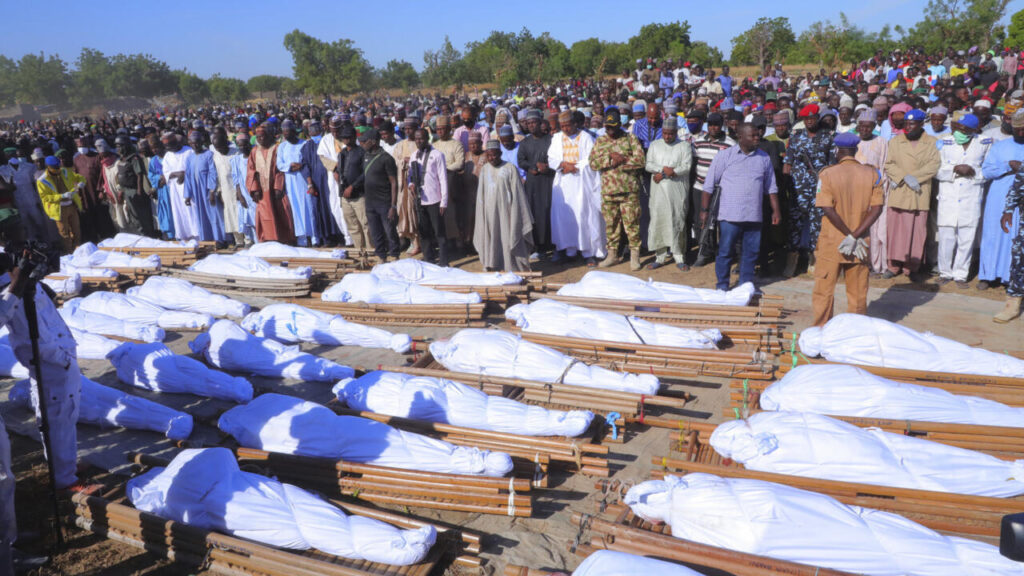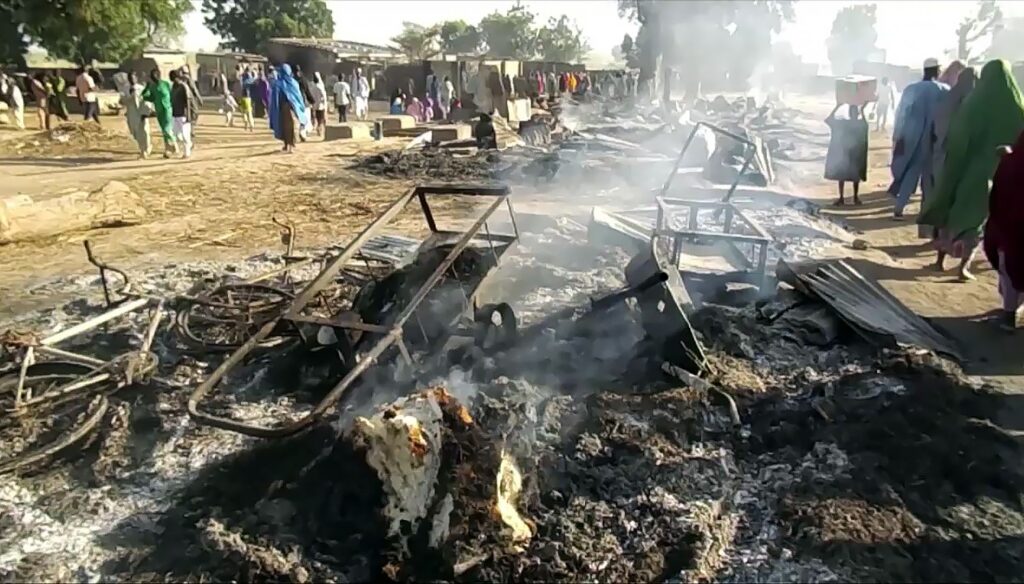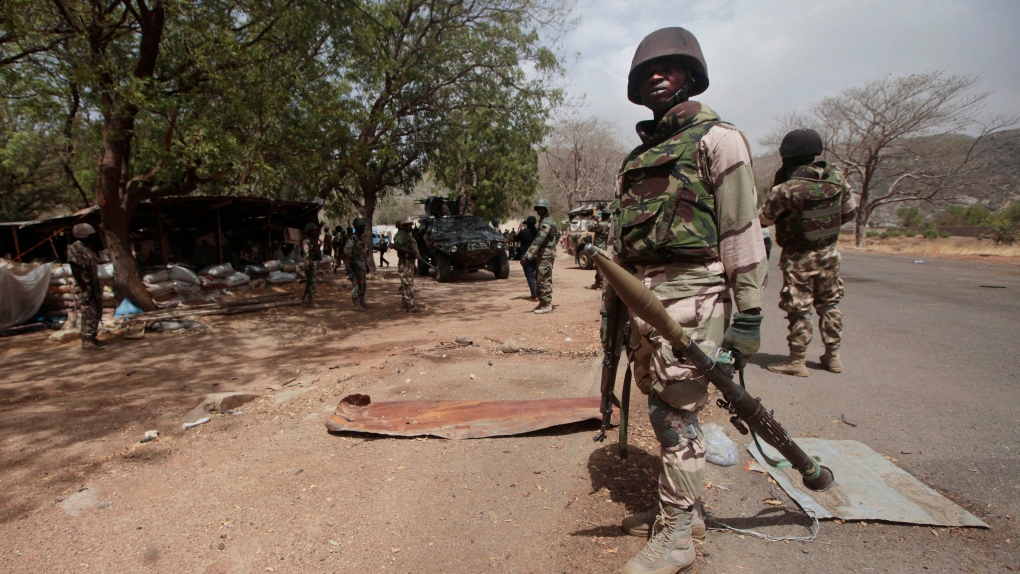At least 40 farmers were killed in the Dumba community of Kukawa Local Government Area in Borno State, Nigeria, following an attack by militants believed to be members of Boko Haram and the Islamic State West Africa Province (ISWAP). The attack, which occurred around 4:30 p.m. on Sunday, left dozens missing, with reports suggesting some were abducted by the assailants.

Borno State Commissioner for Information and Internal Security, Prof. Usman Tar, confirmed the attack in a statement on Monday, saying, “Initial reports indicate about 40 farmers have been killed, while the whereabouts of many who escaped the attack are being traced for reunion with their families.”
The attack came less than 24 hours after two people were killed and a church was set ablaze in a similar attack in Chibok, a community in southern Borno.
Governor Babagana Zulum condemned the attack, calling it “barbaric” and urging military forces to track down the insurgents operating in the Lake Chad region, including Dumba and surrounding enclaves.

Sources revealed that the victims were attacked after venturing beyond military-designated security tracks, which were created to prevent civilians from straying into areas controlled by Boko Haram or ISWAP.
The Kukawa area has been a recurring target of Boko Haram since 2014, with multiple attacks devastating the region. In December 2019, the militants attacked Baga, the headquarters of Kukawa Local Government, in a violent operation that left scores dead and thousands displaced.
In his statement, Governor Zulum expressed sorrow over the killings, urging residents to adhere to designated “safe corridors” established by the military to ensure their safety.
“The government has clearly demarcated land for safe farming and economic activities, allowing the military to focus on clearing unsafe areas. Citizens should avoid venturing into dangerous zones,” the governor emphasized.
Zulum also praised the armed forces for their ongoing efforts to secure territories for farming and resettlement as part of the government’s long-term strategy to rebuild lives and livelihoods.
Meanwhile, the Chief of Defence Staff, Gen. Christopher Musa, emphasized that military operations, including airstrikes, are conducted with precision to avoid civilian casualties. Musa made this statement following allegations of accidental killings during recent airstrikes in Zamfara State.
“Before any airstrike is conducted, we follow strict protocols and use precision to avoid targeting civilians,” he said in an interview with Arise News.
Musa also raised concerns about the tactics employed by terrorists, who have resorted to impregnating women to raise a new generation of fighters.

The Nigerian government is collaborating with international organizations, including the United Nations and European Union, to trace and cut off funding sources for terrorist groups.
“Locally, we believe they are funded through taxes, levies, kidnapping, and other illegal activities,” Musa said, adding that coordinated efforts are underway to mitigate terrorism financing.
The military is preparing legal action against Reuters over allegations of forced abortions during counterinsurgency operations in the Northeast. Gen. Musa criticized the report, describing it as baseless and damaging to the country’s armed forces.
The House of Representatives Committee on Army has assured the Nigerian Army of adequate financial support in the 2025 budget to address insecurity. Committee Chair Aminu Balele praised the Army’s 2024 budget performance, noting a 99% implementation rate.



